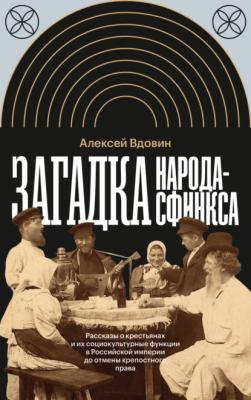Загадка народа-сфинкса. Рассказы о крестьянах и их социокультурные функции в Российской империи до отмены крепостного права. Алексей Вдовин
Читать онлайн.| Название | Загадка народа-сфинкса. Рассказы о крестьянах и их социокультурные функции в Российской империи до отмены крепостного права |
|---|---|
| Автор произведения | Алексей Вдовин |
| Жанр | |
| Серия | Интеллектуальная история |
| Издательство | |
| Год выпуска | 0 |
| isbn | 9785444823828 |
130
«In falsely identifying himself with the rustic commoner, in other words, the privileged aesthete helped to ward off associations of guilt brought about by glaring contrasts in real social conditions. <…> Pastoral fantasy proved useful as a balm for the troubled „political unconscious“ of the Russian landowner» (Ely C. This Meager Nature: The Landscape and National Identity in Imperial Russia. DeKalb, 2009. P. 44).
131
«The universalist, ahistorical, and erotic aspects of the traditional and neoclassical pastoral had been discarded, but the countryside was still connected to visions of unspoiled nature, simple and genuine human relationships, and the innocence of youth. This interpretation of rural Russia offered elites the imagined experience of a cleansing and reawakening to their innate native sensibilities, which seemed to have been lost in the urban, Europeanized environment in which they spent so much of their time» (Ibid. P. 124–125).
132
Такие причины популярности повестей о дворянском детстве предложил Э. Вахтель: Wachtel A. B. The Battle for Childhood: Creation of a Russian Myth. Stanford, 1990.
133
Alpers P. What Is Pastoral? P. 68–69.
134
Spivak G. Ch. Can the Subaltern Speak? // Marxism and the Interpretation of Culture / Ed. by С. Nelson, L. Grossberg. Basingstoke, 1988. P. 271–313.
135
В этом я следую социологическому пониманию агентности, см.: Гидденс Э., Саттон Ф. Основные понятия в социологии. 2‐е изд. М., 2019. С. 43–48.
136
Фуко М. Герменевтика субъекта: Курс лекций, прочитанных в Коллеж де Франс в 1981–1982 учебном году / Пер. с фр. А. Г. Погоняйло. СПб., 2007. С. 393–394; McGushin E. Foucault’s theory and practice of subjectivity // Michel Foucault: Key Concepts / Ed. by D. Taylor. Durham, 2011. P. 130–134.
137
Fludernik M. The Fictions of Language and the Languages of Fiction: The Linguistic Representation of Speech and Consciousness. London; N. Y., 1993. P. 227–256.
138
Rancière J. Proletarian Nights: The Workers’ Dream in Nineteenth-Century France / Transl. by J. Drury. London, 2012. P. 22–23.
139
Ibid. P. 25–27.
140
Мишле Ж. Народ. М., 1965 (Серия «Литературные памятники»). С. 118.
141
Мишле Ж. Народ. С. 120.
142
Moon D. The Russian Peasantry 1600–1930: The World the Peasants Made. London; N. Y., 1999. P. 2.
143
См. о нем: Rebecchini D. The Success of the Russian Novel, 1830s – 1840s // Reading Russia. A History of Reading in Modern Russia / Ed. by D. Rebecchini, R. Vassena. Milan, 2020. Vol. 2. P. 141.
144
Впервые этот аспект отмечен в: Fanger D. The Peasant in Russian Literature. P. 241–242. См. также недавнюю статью К. Осповата о пишущем и политически мыслящем крестьянине Савве Пурлевском: Осповат К. Поэзия демократии: Стихотворный язык и политическое воображение крестьянства в «Вестях о России» и «Воспоминаниях» Саввы Пурлевского // Новое литературное обозрение. 2023. № 4. С. 89–108.
145
Ткачев П. Н. Принципы и задачи реальной критики // Он же. Кладези мудрости российских философов. М., 1990. С. 493, 504.
146
О взглядах и принципах Ткачева см.: Зубков К. Ю., Б. Ш. Ткачев Петр Никитич // Русские писатели 1800–1917 / Гл. ред. Б. Ф. Егоров. Т. 6. СПб., 2019. С. 221–225.
147
Ткачев П. Н. Разбитые иллюзии // Он же. Люди будущего и герои мещанства. М., 1986. С. 162–163.
148
Ткачев П. Н. Разбитые иллюзии. С. 164.
149
Там же. С. 169.
150
Там же. С. 176.
151
Там же. С. 265.
152
Ткачев П. Н. Разбитые иллюзии. С. 282.
153
Rancière J. Mute Speech: Literature, Critical Theory, and Politics / Transl. by J. Swenson. N. Y., 2011. P. 43–50.
154
Ibid. P. 60. В качестве яркого литературного примера Рансьер приводит
